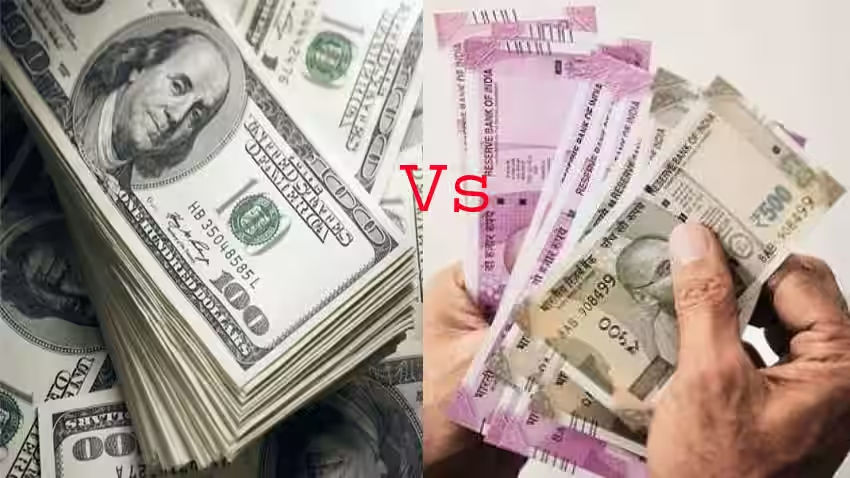Mumbai, August 6, 2025 — In a surprising show of resilience, the Indian Rupee strengthened by 15 paise in early Wednesday trading, reaching ₹87.73 per U.S. dollar, despite fresh tariff threats from U.S. President Donald Trump. The move comes a day after the rupee hit an all-time low of ₹87.88 per dollar, weighed down by global trade tensions and foreign investor outflows.
💱 Rupee Movement and Market Reaction
- The rupee opened at ₹87.72 and settled at ₹87.73, up 15 paise from the previous close.
- The Dollar Index, which tracks the greenback against six major currencies, fell 0.07% to 98.71, offering some relief to emerging market currencies.
- The rebound follows a sharp decline on Tuesday, when the rupee closed at its lowest-ever level amid concerns over U.S. tariffs and global risk aversion.
🏛️ RBI Holds Repo Rate at 5.5%
The Reserve Bank of India (RBI) concluded its three-day Monetary Policy Committee (MPC) meeting with a decision to keep the repo rate unchanged at 5.5%, maintaining a neutral stance.
Key highlights:
- Inflation forecast revised down to 3.1% for FY26, from 3.7% in June.
- GDP growth projection retained at 6.5%, signaling confidence in domestic demand.
- RBI Governor Sanjay Malhotra emphasized the need to assess the impact of earlier rate cuts before making further moves.
📉 Stock Market Snapshot
Despite global jitters, Indian equities showed modest gains:
- BSE Sensex rose 113.41 points to 80,823.66.
- NSE Nifty 50 climbed 19.20 points to 24,668.75.
However, analysts warn of volatility ahead, with technical indicators suggesting support at 24,500 and resistance near 25,000 for Nifty.
🛢️ Brent Crude and Global Trade Tensions
- Brent crude rose 0.62% to $68.06 per barrel, reflecting supply concerns and geopolitical uncertainty.
- Trump’s latest executive order imposes a 50% total tariff on Indian goods, citing India’s continued purchase of Russian oil.
- The move is expected to impact sectors like pharmaceuticals, textiles, and auto components, and could trigger retaliatory measures from India.
📊 Foreign Investor Activity
- Foreign Institutional Investors (FIIs) were net sellers on Tuesday, offloading ₹22.48 crore worth of equities.
- The outflows reflect caution amid tariff threats and uncertain global cues.
🧾 Conclusion
India’s financial markets are navigating a complex landscape of external pressure and internal stability. While the rupee’s rebound and RBI’s steady hand offer short-term relief, the looming tariff escalation from the U.S. could reshape trade flows and investor sentiment in the weeks ahead.


